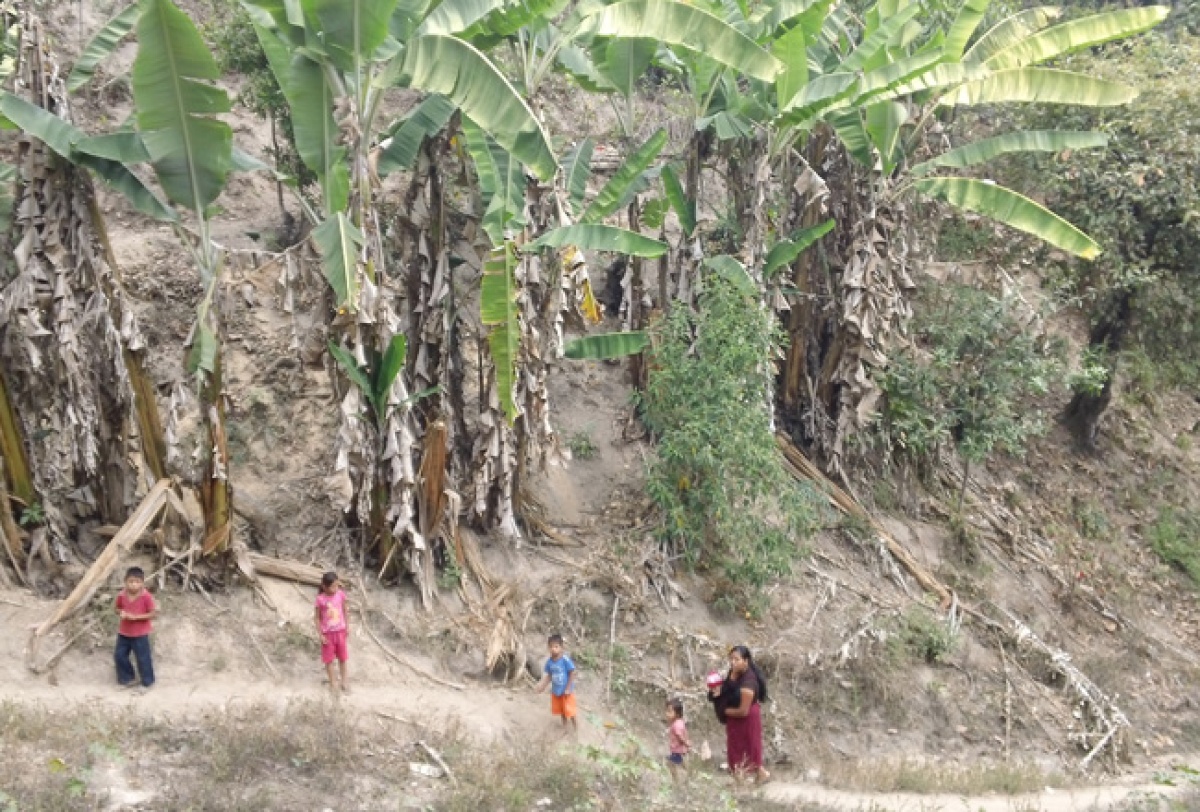In Mexico, a Lebanese Medical Student Finds a Model of Excellence
Posted on Aug 12, 2013

What can Lebanon learn from Mexico? That question rattled around the mind of Kareem Raad as he made the nearly 24-hour trek from his home on the outskirts of Beirut to Jaltenango, Chiapas, where PIH’s Mexican sister organization, Compañeros en Salud (CES), is based.
Raad, a young Lebanese medical student, was drawn to CES because of its focus on revitalizing and rebuilding a primary care system. “We need to build a model of excellence in primary care in my country,” he says, echoing the CES vision statement. Lebanon, he says, spends a similar percentage of its GDP on health care as Mexico and has similar health indicators. There are numerous lessons in health-system strengthening gleaned from CES that could be adapted and deployed in his country, but exactly how remained to be seen.
Since 2012, CES has been placing Mexican social service year physicians—known as pasantes—in clinics throughout isolated areas in the Sierra Madre Mountains of Chiapas, recruiting them with unique education and mentorship opportunities.
We’ve built a system of partnerships and accompaniment that the Mexican Ministry of Health and other developing countries can learn from,” says Dr. Hugo Flores Navarro, director of CES. “There are lessons that we’ve learned, especially in terms of primary care in rural settings, that could be applied elsewhere in Mexico and in other countries.”
It took only a few days for the pasante-staffed clinics to inspire Raad and stoke his imagination. The way in which the young doctors were invested in the community stood out. “In Mexico I felt like I was working in clinics that could serve as a model of excellence for chronic and preventive care,” he says. “They were deeply embedded in a community, with physicians who lived the same daily experiences as their patients.”
Like all great partnerships, the learning exchange went both ways. In a monthly course given to the pasantes, Raad delivered a lecture on the intricacies of Lebanon’s health system, highlighting similarities and differences to Mexico, successes and failures.
“He really showed us that there is social injustice everywhere, and how much government systems can influence quality of care,” notes Hector Carrasco, who started working with CES as a pasante in February 2013.
For Raad, the most important lesson was that ideas and insights can be exchanged across borders, across cultures, and across languages with tremendous results. “These conversations can help create radical transformations in the way we think about and design health systems,” he says.
When asked how he was going to utilize his experience with CES in Chiapas, Raad joked that he wants to “copy and paste” with a few tweaks.
“A crucial and very classic Partners In Health idea that I picked up during my recent experiences is the importance of seeing the whole person,” he said. “In seeing the history, culture, economic, and political factors that bring a patient to you with a particular biological problem, you come to understand that beyond the medication, the solution is nonbiological.”
Green Mountain Coffee Roasters generously supports PIH’s work in Mexico.
Emma Goodstein has been collaborating with the PIH/CES team in Chiapas, Mexico, since June 2012. Originally from Portland, Oregon, she graduated from Wesleyan University in 2010 with a degree in history and has since worked in various positions in health care in Portland and New York City. She will be entering Emory School of Medicine this fall.
To learn more about Kareem Raad's pursuits, check out his blog.

